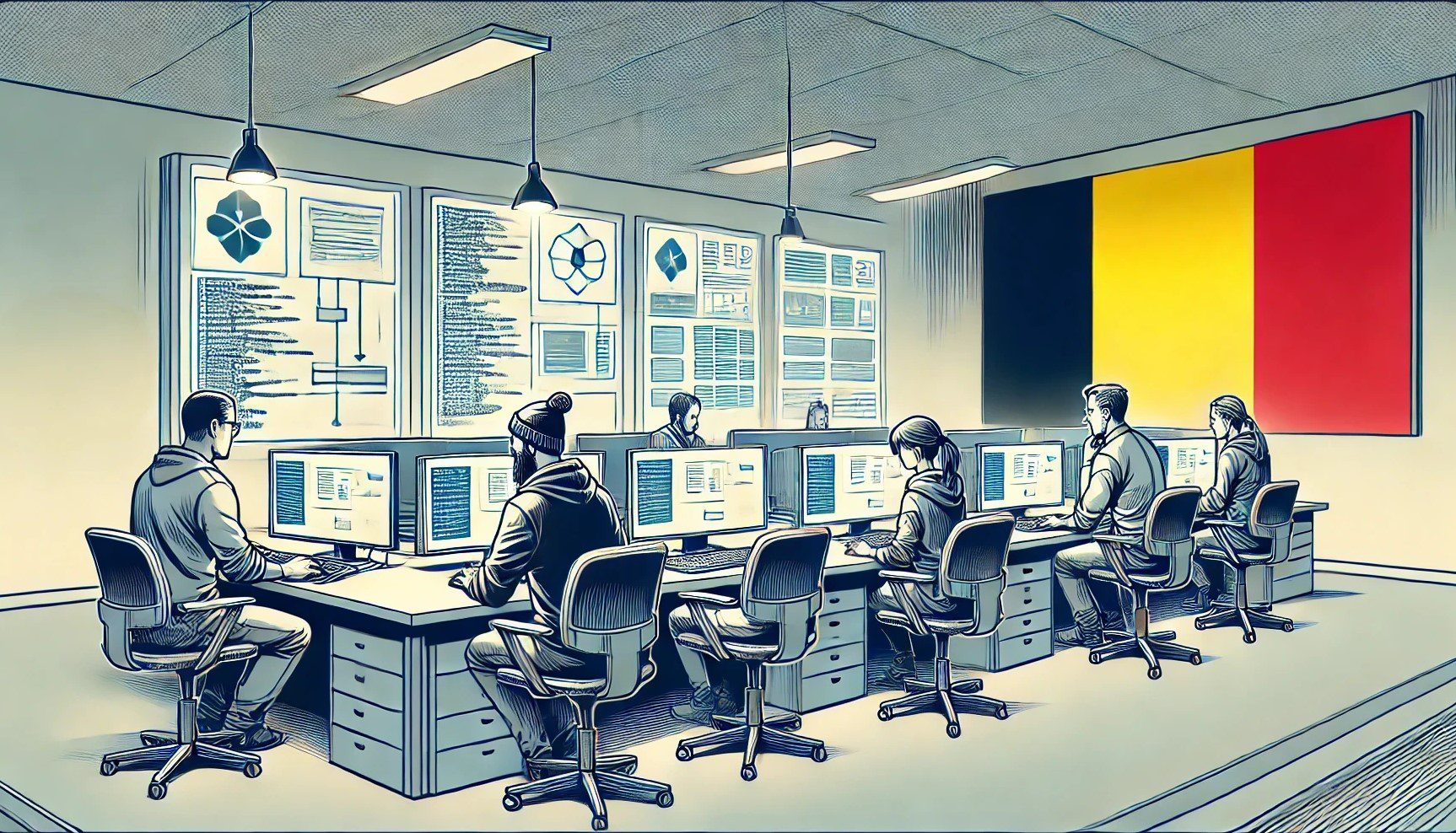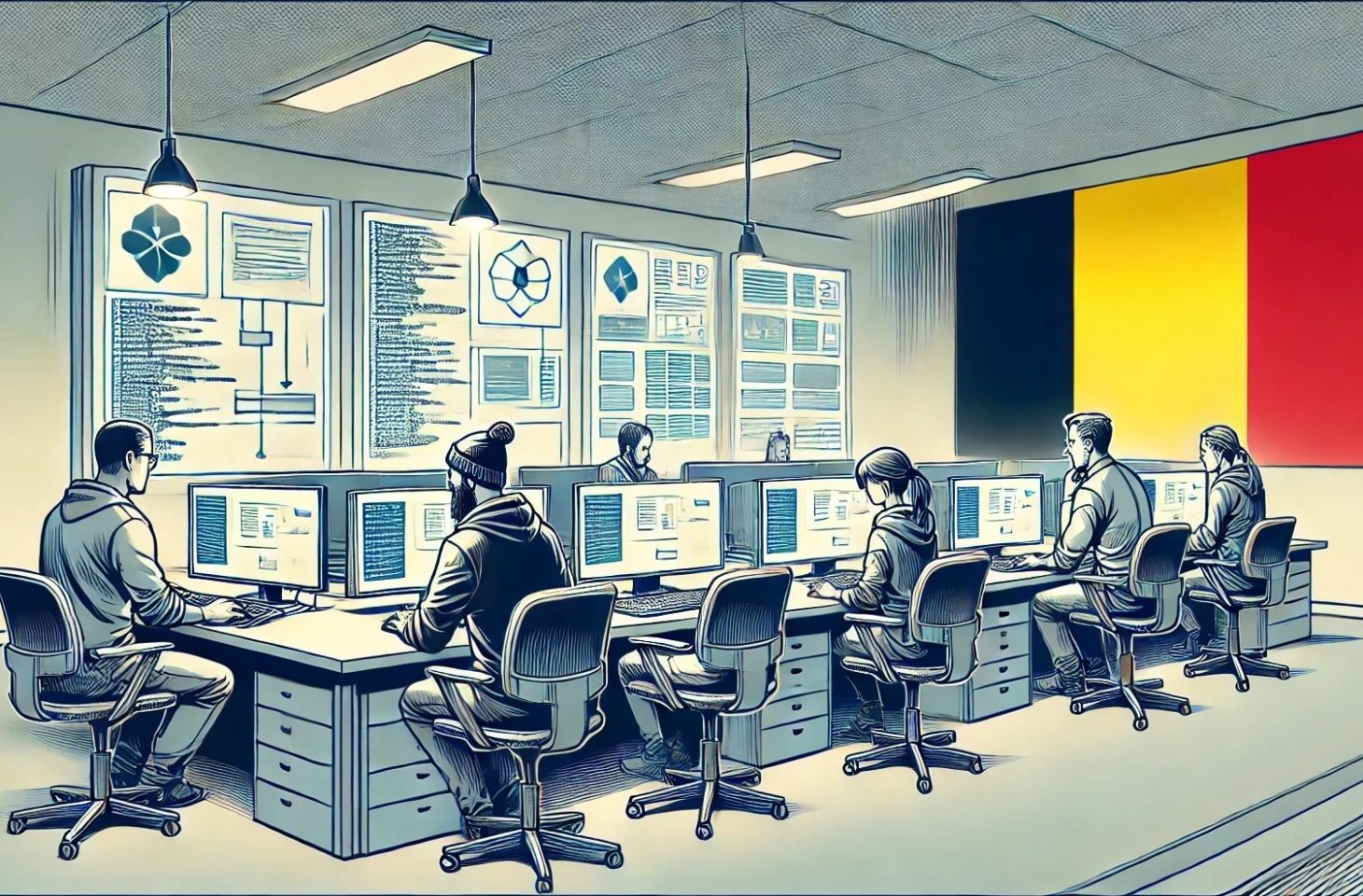Made in Belgium: a seal of quality for safety?
- September 3, 2024
- 0
The security world in our country and in Europe is mainly dominated by foreign players. But Belgium also produces large and small security specialists. They have expertise that
The security world in our country and in Europe is mainly dominated by foreign players. But Belgium also produces large and small security specialists. They have expertise that


The security world in our country and in Europe is mainly dominated by foreign players. But Belgium also produces large and small security specialists. They have expertise that not only fits perfectly into the European market, but can also be admired elsewhere.
If you’re a company looking to get your cybersecurity in order, there are three types of parties you can turn to, according to Jo Vander Schueren of Jarviss:
This category also included the previous company where Vander Scheuren made his name: SecureLink. The company was founded in Belgium in 2003 and quickly developed into a major independent European player. SecureLink did not remain independent: after a takeover by an American investor, the company eventually became the property of Orange. The remnants are known as Orange Cyberdefense and clearly fall into the first category of organizations.
Jarviss is a young Belgian security specialist, but one with ambitions. The company focuses on the Belgian mid-sized market, but also supports smaller companies if they share the same security vision. Jarviss recently made the leap to the Netherlands. And yes, the name is inspired by Iron Man’s AI butler.
Jarviss follows in the footsteps of not only SecureLink, but also Spotit, which is still entirely Belgian-owned. Steven Vynckier founded Spotit ten years ago with his partner Frederik Rasschaert. The two were disillusioned with the internal political games within the large company they worked for and saw a big gap in the Belgian security market. “That gap still exists today,” says Vynckier, who is trying to fill it with Spotit as qualitatively as possible.
Like Jarviss, Spotit focuses on the mid-range segment. The target group includes companies with at least 200 employees, but there is no upper limit. The two Belgian security forces have one thing in common: they want to work with customers who see cybersecurity as an added value.
“We are not looking for parties who simply want to achieve ISO2000,” says Vynckier. For Jarviss, too, the size of the customer is not necessarily the deciding factor, but rather the importance they attach to security.
This importance is growing. “Cybersecurity awareness has certainly increased over time,” says Vander Schueren. “There is a greater awareness of the impact, also thanks to all the stories that appear in the news. People read that and start to think about their own organization.”
Criminals used to break in, now they log in.
Jo Vander Schueren, co-founder of Jarviss
“There is a big difference in maturity compared to five years ago, but the complexity of attacks has also increased,” Vander Schueren continues. “In the past, criminals would break in, now they log in. Some phishing campaigns are so good that they are barely detectable with the naked eye.”
Vander Schueren notes that the number of people available has not grown with the complexity. “There is still a gap.”
Vynckier agrees that as awareness increases, so does complexity and a skills gap remains, but sees things a little rosier. “Companies have really made an effort to invest and develop plans in recent years.”
According to Vynckier, Belgium has an advantage in this respect. “Compare our country with the US and you see that the government there is actually more advanced than ours. But when it comes to companies, we see the opposite. Belgian companies are better off in this regard.”
“Research by the University of Antwerp and the Antwerp Management School has shown that organizations with a high level of digital maturity in terms of data protection and cybersecurity generally achieve better business results,” says Koen De Maere, Board Member and Director Marketing and Communications, Government Relations and Advocacy at Isaca.
De Maere: “Belgium is exceptionally strong there, ranking third in the National Cyber Security Index. This index assesses the cybersecurity maturity of countries worldwide. By giving such importance to digital trust, Belgian organizations are setting an example for other countries.”
This, in turn, affects the reputation of Belgian security companies abroad. “Belgium is a seal of quality,” notes Vynckier. “Belgians have a good reputation and are also considered hard workers.” The European security story also resonates outside Europe, as far as the USA.
Belgium is a seal of quality.
Steven Vynckier, co-founder of Spotit
Then there are some other advantages that apply specifically to European and Belgian security specialists. Vynckier: “Compared to international players, we have extensive knowledge of data protection regulations such as the GDPR. This means Core business for us. In addition, we have a local presence and extensive language skills.”
Vander Schueren sees a similar trend at Jarviss. “Trust is very important in this industry. Basically, companies buy something they don’t want to stop something they don’t see. Nobody wants to be a number in a matter like this. When things really get serious, you want to be able to call a phone number where you have a direct line to someone you trust.”
Organisations like Spotit and Jarviss can offer such a relationship of trust thanks to their local roots. This allows them to do business in their own way with the often more diverse and somewhat smaller European companies. On the other hand, the good reputation of Belgian cybersecurity also helps to give local players a place abroad.
Securing the digital world is a lot of work and there is room for many players. Large organisations like Orange Cyberdefense certainly have their place here, but so do the small independent players. “Belgium is actually a bit too small for a number of large players and providers to pay too much attention,” notes Vander Schueren.
The approach of having more local players works and even makes Belgians perform better in cybersecurity than their government. This brings things full circle, as this reputation in turn generates interest in Belgian cybersecurity forces abroad.
Source: IT Daily
As an experienced journalist and author, Mary has been reporting on the latest news and trends for over 5 years. With a passion for uncovering the stories behind the headlines, Mary has earned a reputation as a trusted voice in the world of journalism. Her writing style is insightful, engaging and thought-provoking, as she takes a deep dive into the most pressing issues of our time.